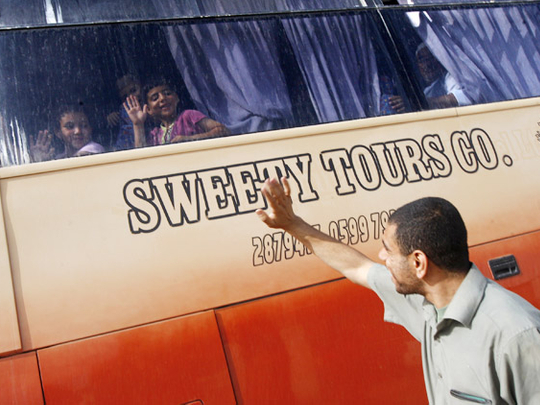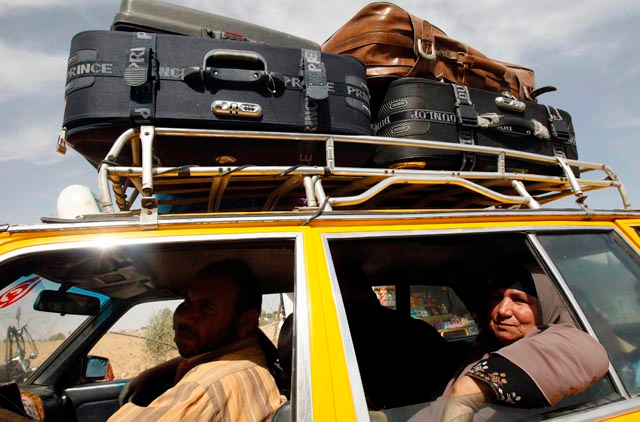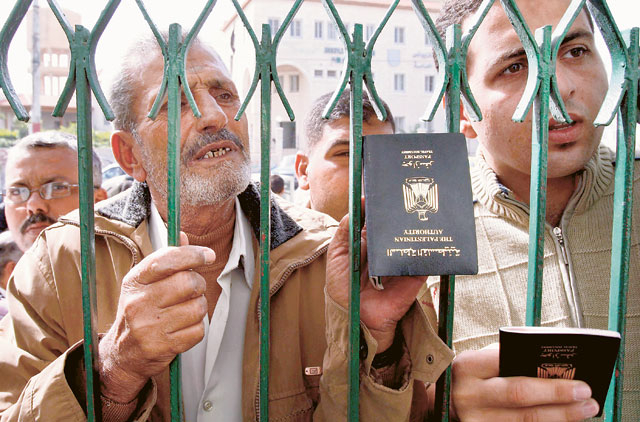
Gaza: A mixture of excitement and anxiety gripped travelers waiting to cross the Rafah crossing on Saturday.
Egypt ruled to permanently open the crossing starting on Saturday. In the first hour after the crossing was opened, 200 Gazans entered Egypt, officials said.
“We as Palestinians are truly thankful to the Egyptian government for opening the Rafah gate,” Dr. Ghazi Hamad, the Rafah border manager and spokesman, told Gulf News.
Under the new Egyptian regime, all coordination for travel goes through the Egyptian embassy.
“I am leaving to meet my relatives in Egypt, something that was very hard to do before,” Samah Ahmad, 26, told Gulf News. Mohammad Abd Al Aal said he was taking his wife and kids on a much needed vacation. “I never took a vacation before. The only times I have ever left Gaza was for medical reasons. I had to pay a lot of money to the Egyptian police and it was very humiliating,” he said.
Women would be able to leave Gaza without restrictions, while men between the ages of 18 and 40 would have to obtain visas for Egypt at the border.
Egypt's decision to open the Rafah border crossing, made on Wednesday, is a bid to end its blockade of Gaza by opening the only crossing to the Hamas-ruled Palestinian territory.
The opening of the crossing is also meant to ease the isolation of 1.4 million Palestinians there.
According to a statement by the Middle East News Agency (Mena), old rules will be reinstated, allowing Palestinians with passports to cross into Egypt every day from 9am to 9pm except for Fridays and holidays.
Mohammad Al Awad, the Hamas minister of foreign affairs, said he "highly appreciates the decision by the Egyptian brothers to ease the process of travel at Rafah terminal. This reflects the deep relation between us and Egypt, and it will contribute to ease the lives of the Palestinians in Gaza."
Col. Ayoub Abu Shaer, Gaza director of the Rafah terminal, said the two sides have been discussing the changes in recent weeks.
With input from agencies













